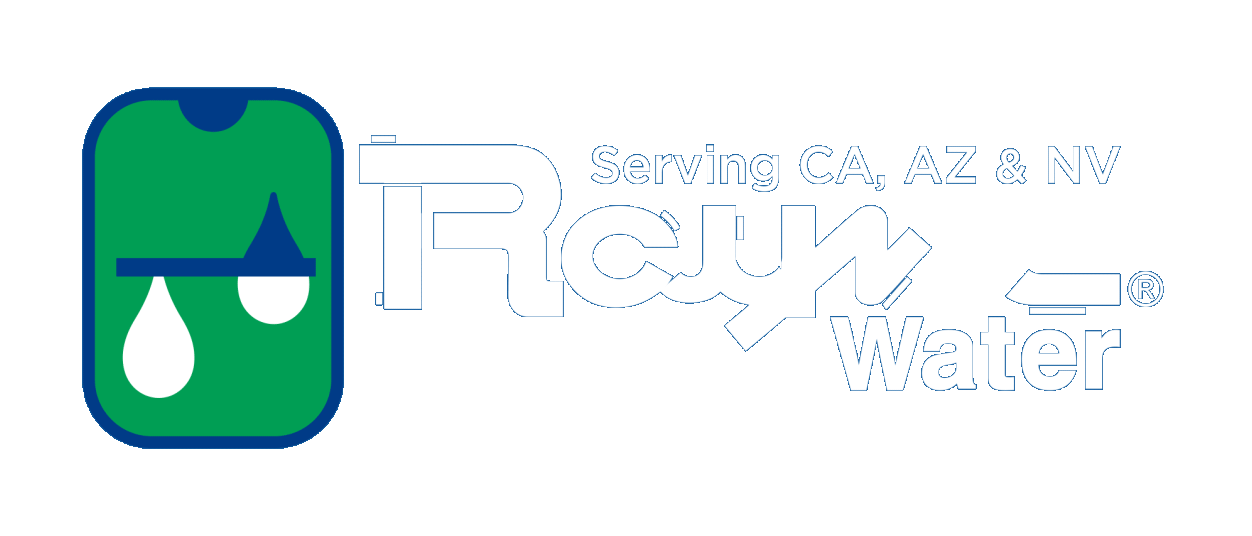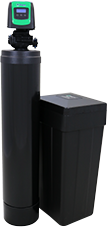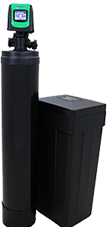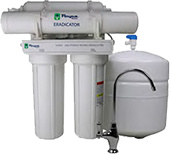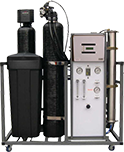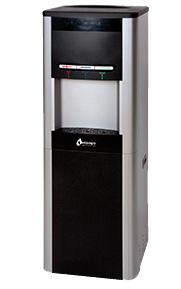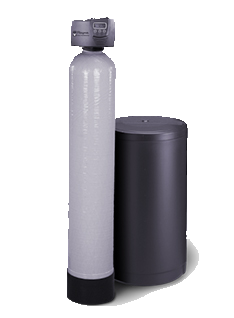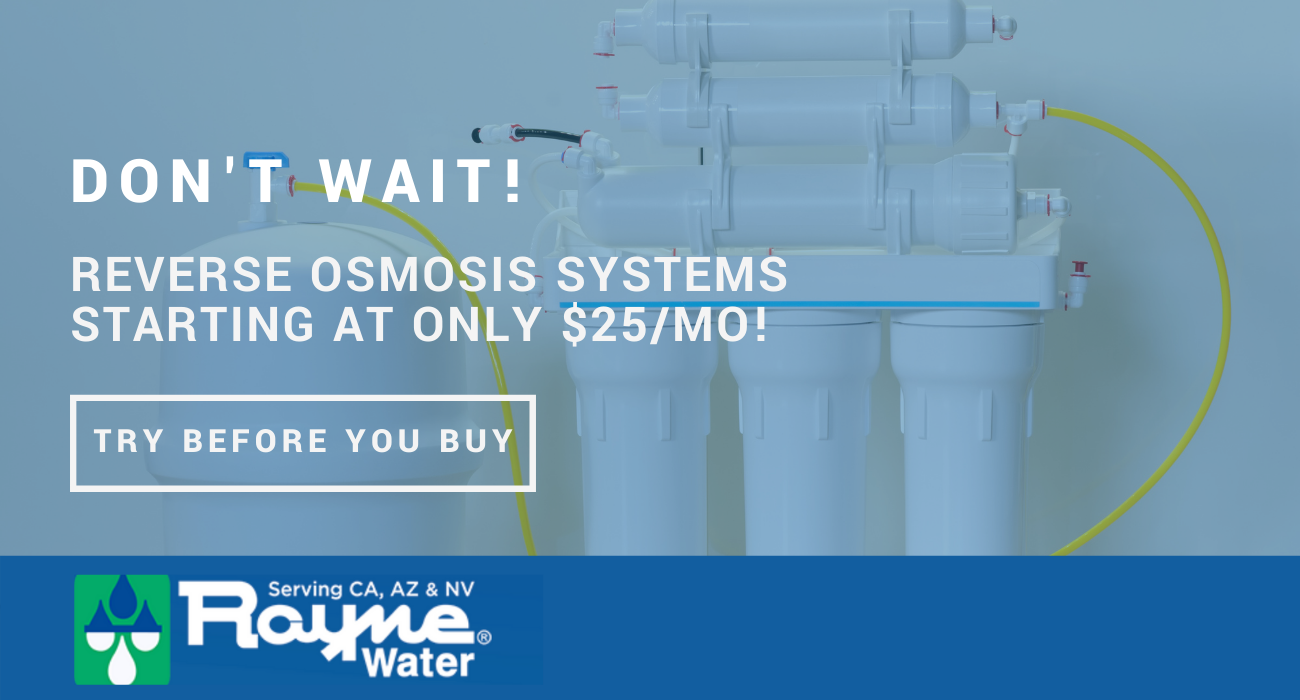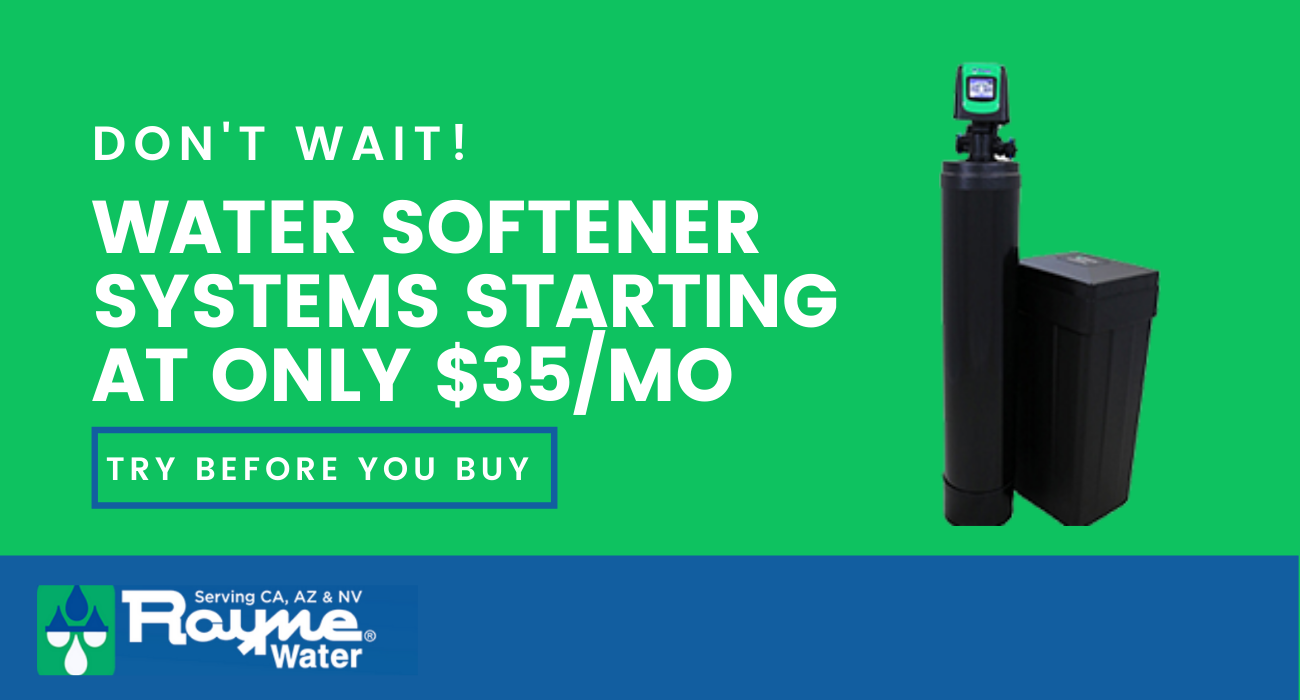*Reviewed by Ken Christopher, Senior Vice President at Rayne Dealership Corporation
If you’re one of the many residents of Orange County, you’re probably too busy enjoying the beautiful weather to spend much time thinking about your tap water. But it’s worth putting some thought into.
Water is one of the most essential elements to ensure your health and wellbeing. Your brain needs water to function properly, and you do as well. Even a little bit of dehydration can cause your focus, recall ability, and general brain efficiency to falter.1
Clearly, ensuring your drinking clean water is important. You may have a water softener and think that is all you need, right? The answer is no. There are a number of factors that go into ensuring that your drinking water is up to standards. So, is tap water safe to drink in Orange County? Usually, the answer is yes, especially in Anaheim, Irvine, Santa Ana, and Mission Viejo, where water quality reports confirm that tap water meets standards. In this guide, we’ll address potential pollutants and possible solutions pertaining to your drinking water.
What is Safe Water?
Knowing that your water is technically “safe” to drink doesn’t give you an understanding of what contaminants aren’t in your tap water—or which ones still might be present.
As such, let’s explore the regulations set by the Safe Water Drinking Act (SDWA). Also enforced by the Environmental Protection Agency, these standards mandate that public water systems treat and test their water to limit the presence of:2
- Arsenic
- Copper
- Lead
- Nitrates
- Bacteria
Limiting these chemical components and testing to ensure that the water quality is up to public health standards ensures that the water coming out of your tap and into your coffee, tea, or boiling soup is safe for you to consume. However, water quality does help to ensure that the water coming out of your tap is safe for you to drink. But there’s more to water quality than these standards alone.
Water Quality in Orange County
While Southern California, and specifically Orange County, has struggled with saltwater infiltration in the past, the water quality throughout Orange County is safe to drink. In fact, some of the water drunk by Orange County residents is recycled water, filtrated by the Groundwater Replenishment System. The Orange County Water District ensures that this wastewater is filtered for inorganic materials and then treated with UV light to ensure purity.3
Now, where does Orange County get its water from exactly? While some of the public water system is sourced from the replenishment system, the majority of Orange County’s drinking water supply comes from the Orange County aquifer. Since most of this water comes from rainwater, it needs little to no treatment. However, some federally-regulated contaminants may still be in the water, including:
- Microbial contaminants – Viruses and bacteria may emerge from sewage treatment plants and septic systems, as well as agricultural livestock.
- Inorganic contaminants – Salts and metals from stormwater runoff, mining, and farming can often leak into groundwater supply.
- Pesticides and herbicides – Pesticides and herbicides from residential and agricultural use may also enter groundwater supply.
- Organic chemical contaminants – By-products of industrial processes and petroleum production can come from gas stations, septic systems, and urban stormwater runoff.
- Radioactive contaminants – Oil and gas production and mining activities can produce radioactive materials that often come from natural deposit erosion.
Despite the presence of certain contaminants, the Orange County Water District ensures that the water is distributed in compliance with federal and state regulations to ensure high-quality drinking water for Orange County residents.
The Safe Water Act Doesn’t Cover Everything
The EPA is committed to ensuring that your water is generally safe to drink and will hold your county to its standards through a regular water quality report. But that’s about as far as the EPA and SWDA extend to ensure you have safe drinking water. They don’t focus on a lot of other factors that can affect your water, such as:
- Overall taste
- Smell
- Potential cloudiness
- Undesirable pollutants in concentrations below EPA levels
Restricting the number of contaminants found in your water supply doesn’t mean it will be completely contaminant-free. And why drink water with less lead when you could drink water with no lead? The EPA’s standards also don’t account for how your water will taste.
To further improve your water’s quality and taste, consider investing in a water system to help filter and purify it. The best filters, such as our Reverse Osmosis Systems, will eliminate any sediment, residual harmful contaminants, and salt that may be in the water. It will also make your water look, taste, and smell better, offering a finished product that’s superior to bottled water.
Double Check Your Water Quality
In addition to investing in a filtration system, you can also test your drinking water quality at home by purchasing a water test that tests for:4
- Chlorine
- Lead
- Bacteria
- Nitrites/nitrates
There are also a couple of different kinds of tests that come in the larger kits you can buy, including:
- Powder kits – These tests tend to be geared towards finding potential bacteria in your water. To use them, add some of your tap water to the powder bottle and give it a shake. Then find the color match to know what’s in your water.
- Test strip kits – Strips tend to offer more information about non-bacterial pollutants. All you have to do is dip the test strip into your water sample, swirl it around, and leave the strip in the water until the color result shows up. Then you can compare the colors to your kit’s chart and find some answers.
Enjoy High-Quality Water with Rayne Water
Water is essential, which means you deserve water you can trust. However, if you’re uncertain about the quality of your tap water, it’s worth investing in a filtration system that filters out harmful contaminants that may sneak into your drinking water.
Enter Rayne Water. Our Reverse Osmosis System is exactly what you need to drink confidently from the tap and ditch those bottled water bills. Not only will it purify your water to make it better than bottled water, but it also fits conveniently under your sink to keep it out of sight.
Keep your water crisp, clean, and fresh with Rayne Water.
If you’re interested in water softener in Irvine, Anaheim, Santa Ana, Mission Viejo and surrounding areas in Orange County. Don’t hesitate to ask us regarding your water supply and treatments for your home or business.
Sources:
- Psychology Today. Why Your Brain Needs Water. https://www.psychologytoday.com/us/blog/you-illuminated/201010/why-your-brain-needs-water
- EPA. Drinking Water Regulations. https://www.epa.gov/dwreginfo/drinking-water-regulations
- Business Insider. A California county has some of the purest tap water in the US. Here’s how it filters out sewage and chemicals so effectively. https://www.businessinsider.com/orange-county-purest-drinking-water-filtered-sewage-2019-10
- Safewise. How to Test Water at Home with a Water Test Kit. https://www.safewise.com/best-water-testing-kits/

